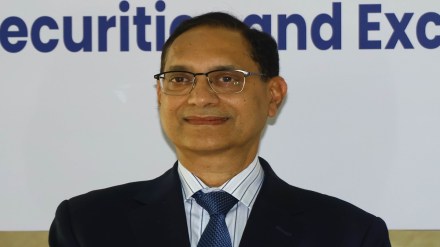Securities and Exchange Board of India (Sebi) Chairman Tuhin Kanta Pandey told Financial Express a few months back that he had set an internal goal for his colleagues: simplifying some of the decades-old regulations. “It would be quite similar to how the Direct Tax Code was drafted. I think within the next three months, we will be able to start accelerating this process, in terms of identifying the pain points. It will be driven as an organisational mission.” In less than three months, the Sebi board has delivered the first tranche of the chairman’s promise. It is noteworthy that the 42-page statement after the Sebi board meeting on Thursday has used the word “ease” over 25 times. That itself tells the whole story. Sebi made 19 changes, all aimed at reducing paperwork and encouraging more companies to list on the bourses. A good example is encouraging promoters to have more skin in the game by reversing the earlier regulation that did not allow them to hold employee stock options (Esops) at the time of going for an initial public offering (IPO).
Pandey, of course, clarified that an industry proposal of allowing fresh Esop benefits to be availed by founders after the listing was not approved by the board. Additionally, it has scrapped a guideline that forced investors to hold shares after conversion from compulsorily convertible securities for at least one year, as it did not allow investors to participate in the offer for sale in IPOs. Both these measures are expected to encourage companies to list and even reverse-flip, that is shifting the country of incorporation from a foreign jurisdiction to India. Similarly, by allowing trust and charitable trusts to list at social stock exchanges, the market regulator is encouraging more transparency in the sector. The approval of a framework for voluntary delisting of public sector undertakings with 90% or more government holding allows delisting at a fixed price, eliminating the two-thirds public shareholder approval requirement. This aligns with the government’s disinvestment agenda.
Foreign portfolio investors (FPIs) wanting to solely invest in G-Secs will now have to go through less compliance burden. Clearly, the market regulator wants to facilitate more investments after India’s inclusion in two bond indices — JP Morgan Global Emerging Markets (EM) Bond Index and Bloomberg EM Local Currency Government Index. In September, Indian bonds will be included in FTSE Russell EM Government Bond Index. In fact, FPI investment through the fully accessible route has seen a significant increase and has crossed Rs 3 lakh-crore mark in March. Also, allowing alternative investment funds to offer co-investment opportunities through separate vehicles and reducing the allotment of infrastructure investment trusts in primary market to Rs 25 lakh from Rs 1 crore will attract more investors.
What is interesting is that a settlement scheme has also been extended to stock brokers who traded on the National Spot Exchange (NSEL) and faced enforcement action from the market regulator. This move is expected to bring major relief to traders whose funds have been stuck since the NSEL payment crisis in July 2013. This decision comes after over 90% of brokers voted in favour of a one-time settlement amount. Overall, the regulatory changes reflect Sebi’s broader agenda under chairman Pandey to improve ease of doing business, boost investor participation, and modernise India’s capital markets.
